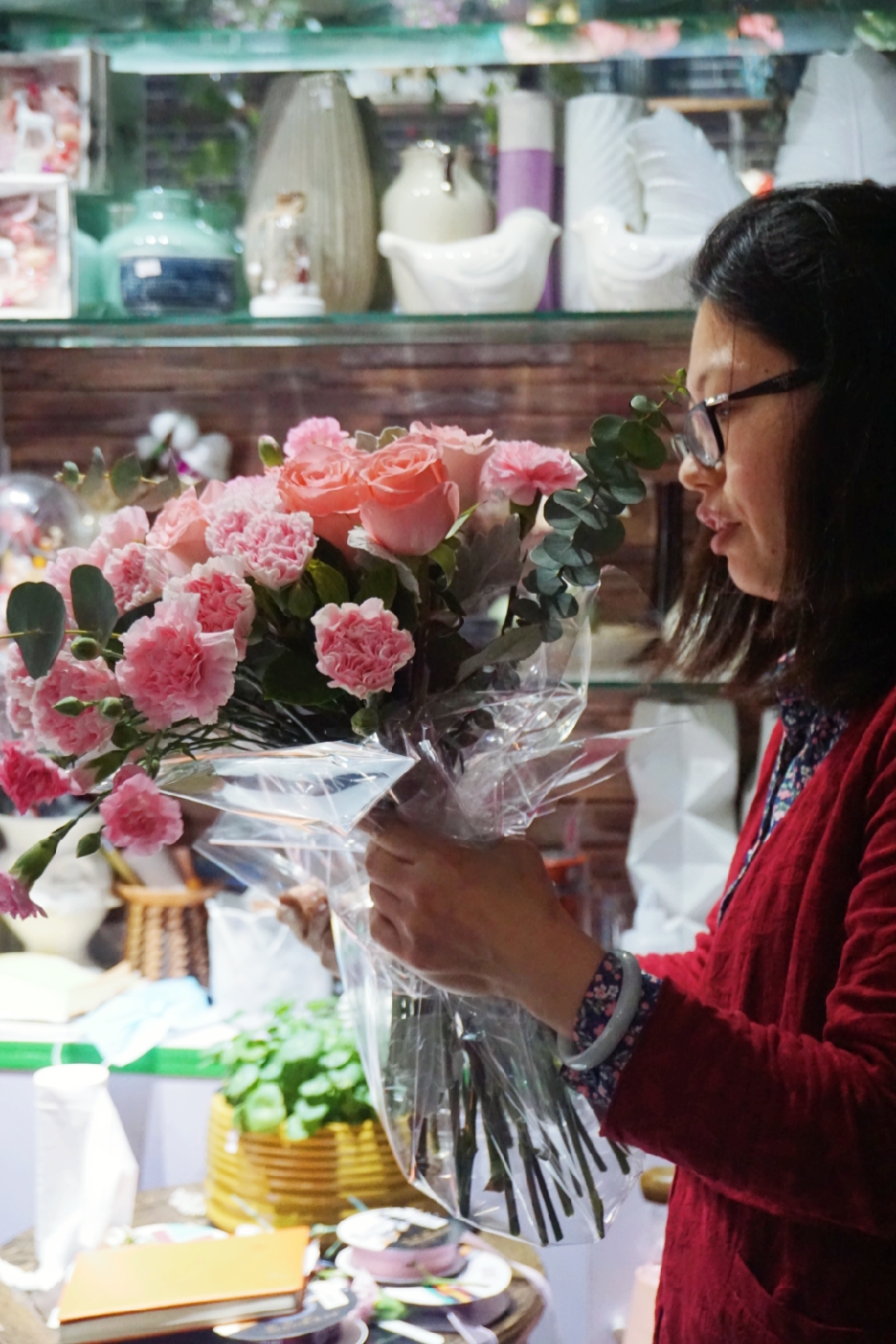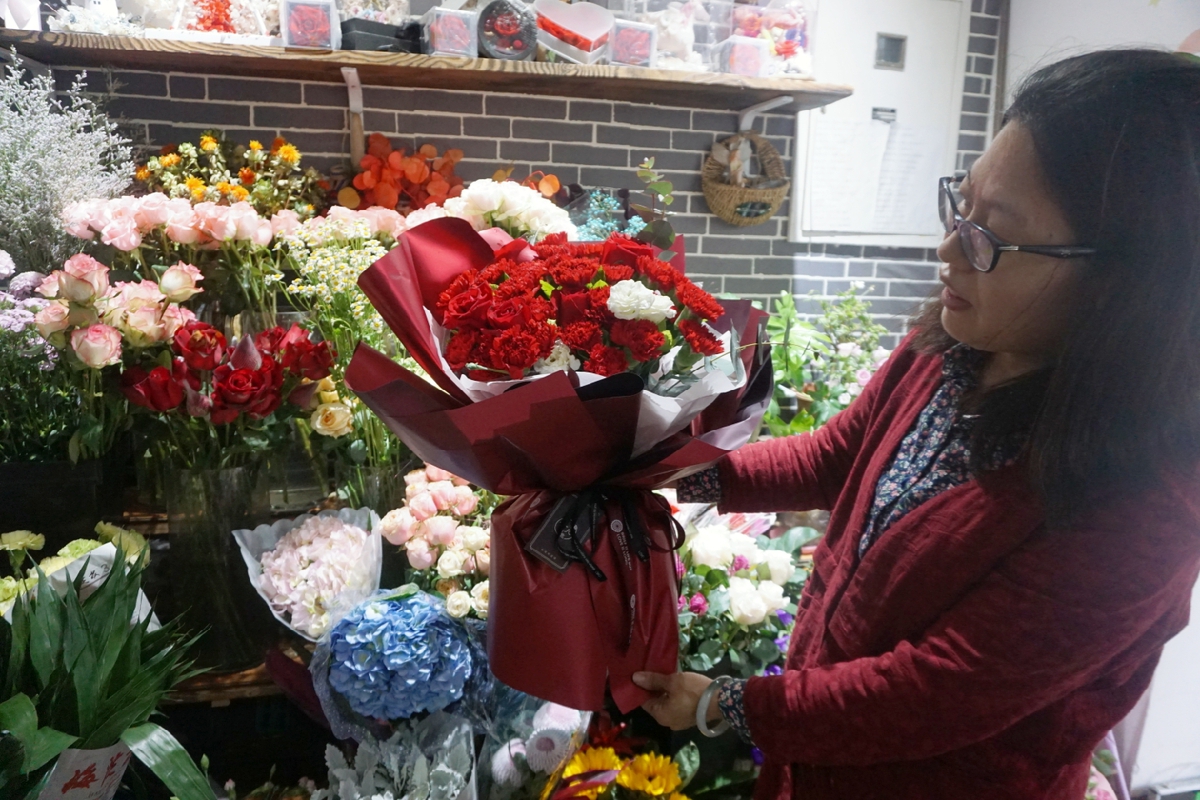Chinese florists hit hard by COVID-19 see rebound in May
- ?By Wang Yiming
 0 Comment(s)
0 Comment(s) Print
Print E-mail China.org.cn, May 12, 2020
E-mail China.org.cn, May 12, 2020
On the day before Mother's Day, Yu Yan, the owner of flower store Beijing Zhuofan Floral Studio, is busy assembling bouquets of carnations for her customers.
"Sales began to pick up around the May Day holiday, and Mother's Day also contributed to the increase in orders. In just a few days, sales revenue has exceeded several thousand yuan. I think between May 1 and Chinese Valentine's Day [Aug. 25] will be peak season," Yu told China.org.cn.

For the past few months, like thousands of other florists in Beijing, Yu Yan has been dealing with the fallout of the COVID-19 outbreak. Her store was forced to close during the Spring Festival holiday back in February and only allowed to reopen in April.
"The outbreak hit us hard, leading us to lose at least 80% in revenues. The demand for flowers plummeted, even for Valentine's Day and Women's Day. We got by because of online orders from a few regular customers. There were almost no new customers, let alone anyone visiting the shop," Yu explained.
"In previous years, we'd offer flower arranging classes for companies in the run up to holidays such as Valentine's Day, Women's Day and Mother's Day. This year, however, many companies had to cancel these team-building activities as part of the controls to prevent the spread of the epidemic, and more likely, also because of reduced corporate revenues."
"In order to get through this difficult period, I had to let go of two employees. We managed to hold out and finally sales started to rise in May," said Yu.

It has also been a tough few months for those working in the flower industry at Kunming Dounan Flower Market, Asia's largest wholesale fresh flower market, located in southwest China's Yunnan province.
According to the Dounan Flower Market Electronic Trading Center, influenced by the coronavirus outbreak, the market halted all trading, tourism and catering services on Jan. 26, and then suspended its auction services on Feb. 6. Vendors have gradually been allowed to return to the market and resume operations starting in late February.
Li Fei used to run a B&B and sell local specialty foods in Kunming. Affected by the outbreak, he lost most of his business because of the dramatic fall in the number of visitors to the city. He decided to change course in March and opened a Taobao store to sell flowers online as the epidemic was gradually brought under control.
"I started preparing in the middle of March, and the Taobao shop was officially launched on April 6. Within a month, I saw orders gradually start to increase," Li said.





